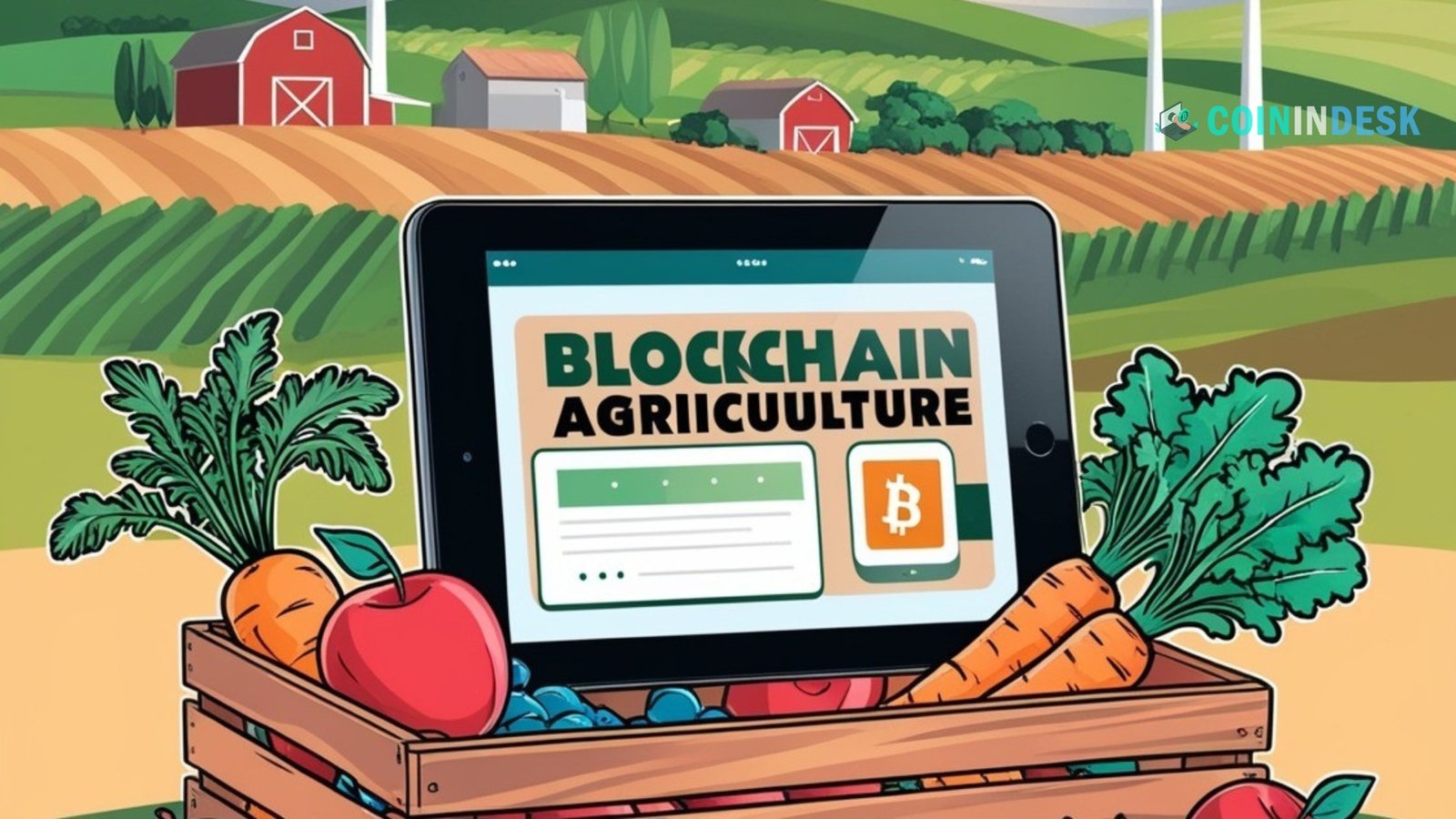Blockchain in Emerging Markets: Though it has had an outsized effect on developing economies, blockchain technology is revolutionizing several sectors worldwide. Problems with transparency, restricted access to banking services, and inefficient financial institutions are common in these areas. Blockchain technology is a promising new development for nations in Eastern Europe, Southeast Asia, Africa, and Latin America since it provides novel answers to these issues.
Here, we’ll look at how blockchain is changing emerging markets, the advantages and disadvantages of this technology, and where it could go from here.
Blockchain’s Potential in Emerging Markets
Systemic problems, such as financial inclusion, inefficient supply networks, and corruption, are frequently among emerging economies’ challenges. Blockchain’s immutable and decentralized ledger system makes opportunities to find solutions to these problems available.
Financial Inclusion
One of blockchain’s most notable advantages in developing economies is the opportunity for financial inclusion. Solutions based on the blockchain, like digital wallets and cryptocurrencies, allow individuals to participate in the economy even in places where conventional banking is either unavailable or severely limited.
Cryptocurrencies such as Bitcoin and stablecoins are alternatives to national currencies, which are susceptible to inflation. In areas where a significant percentage of the population cannot access traditional banking services, digital wallets powered by blockchain technology provide a crucial alternative for safe money storage and transfer.
Transparent and Secure Transactions
Due to its immutable and trustworthy character, blockchain technology is perfect for combating the rampant corruption and fraud plagues developing economies. Data tampering becomes extremely unlikely because blockchain transactions are recorded on a public ledger. This openness goes a long way in areas where trust is crucial, such as agriculture, real estate, and government.
To guarantee the ethical sourcing of electronics raw materials like cobalt, for instance, blockchain is being utilized to trace the mineral supply chain in the Democratic Republic of the Congo. Global supply chain management is enhanced, accountability is raised, and the likelihood of fraud is decreased.
Reducing Remittance Costs
Many individuals in developing economies earn much of their income from remittances. When sending money internationally, traditional remittance providers like MoneyGram and Western Union sometimes charge hefty fees—up to 10%. By cutting out intermediaries, remittance platforms built on the blockchain can facilitate cheaper and faster international transactions while drastically lowering these expenses.
Blockchain-based projects like Stellar and Ripple aim to make international money transfers simpler and cheaper for people in developing economies to receive from loved ones living abroad.
Applications of Blockchain in Emerging Markets
Financial services are not the only industries that can benefit from blockchain technology. Each of its prospective uses has the potential to impact emerging economies substantially, and its potential applications span a wide range of industries.
Agriculture and Supply Chain Management
Agriculture is an important part of many developing economies, and blockchain technology can improve supply chain management by making it more efficient and transparent. Farmers can use blockchain technology to document and trace the movement of goods from the farm to the customer to ensure their crops are safe and up to par.
Kenya is one country using blockchain technology to monitor the movement of coffee beans. Farmers can secure payment for their goods, and buyers will have access to clear data regarding the origin and grade of the coffee they purchase.
Healthcare
Healthcare systems in developing markets often experience infrastructure problems, inefficiency, and corruption. However, blockchain technology can make secure and transparent patient information, easier distribution of medical supplies, and better access to cheap care possible.
Patients in Estonia may now safely access and share their medical records thanks to a state-run EHR system built on the blockchain. Emerging markets could gain from this type of innovation if it helps with patient care and decreases the chances of fraud.
Land and Property Rights
In many developing economies, disagreements about who owns what land are commonplace. Blockchain technology provides an answer by creating an immutable and transparent ledger for land ownership records. This can allow landowners to get loans, which helps cut down on fraud and establish land ownership.
Some countries, including Ghana and Honduras, are exploring blockchain technology to solve the problems associated with land registration. In certain situations, blockchain technology can create a decentralized, immutable record of property titles, reducing the likelihood of legal challenges and expanding participation in formal financial systems.
Challenges to Blockchain Adoption in Emerging Markets

Blockchain technology has great potential, but many obstacles must be overcome before it can be widely adopted in developing countries. These include regulatory obstacles, technology infrastructure constraints, and public awareness difficulties.
Regulatory Hurdles
Blockchain and cryptocurrency regulatory frameworks are constantly in flux, particularly in developing economies. Cryptocurrency trade and usage have been restricted or banned in several countries due to governments’ reluctance to embrace decentralized systems that could be more difficult to regulate.
For blockchain to take off, governments in these areas need to find a middle ground between stifling innovation and overregulating it, with consumer protections and technological advancements going hand in hand.
Infrastructure Limitations
A strong technical foundation, including reliable internet and digital device access, is necessary to deploy blockchain technology effectively. Nevertheless, there are still substantial gaps in the digital infrastructure of many emerging markets. Blockchain solutions might not be accessible to many people if they do not have access to affordable cell phones or consistent internet.
Public Awareness and Education
Many individuals in developing markets don’t understand blockchain or its potential because it is still a difficult and new technology. To overcome this obstacle, public awareness and education initiatives are crucial. Also, non-technical individuals can be more easily convinced to utilize blockchain technology if there are user-friendly apps that make the process easier.
Future Outlook: Blockchain and the Path Forward for Emerging Markets

Despite all the obstacles, blockchain technology has a bright future in developing economies. Governments, banks, and tech companies increasingly see this technology’s promise to address long-standing issues. Blockchain technology can potentially revolutionize these areas if they adopt the correct legislative frameworks and invest in their digital infrastructure.
Increased Government Participation
More and more governments in developing economies are seeing the potential of blockchain technology. They will likely pass laws to promote its use in essential industries like banking, healthcare, and property management. There is hope that blockchain technology can improve government efficiency, lessen the prevalence of corruption, and strengthen public-private partnerships.
Private Sector Innovation
Most blockchain-related innovation in developing economies comes from private enterprises, mostly in the tech and financial industries. Many companies are discovering new uses for blockchain technology, from supply chain management systems to mobile banking solutions, to make their services more accessible and efficient.
Expansion of Blockchain in Rural Areas
Most people in developing economies reside in rural areas far from urban centers, where even the most fundamental amenities are scarce. Blockchain’s ability to provide previously inaccessible services—like healthcare, banking, and education—to these neglected areas could result in greater economic growth and improved quality of life.
Also Read: Blockchain in Advertising: Transforming the Industry
In summary
Blockchain technology can radically alter several rising market industries, from banking and farming to healthcare and property management. It can also drive sustainable development and economic progress, offering solutions to systemic concerns, including corruption, lack of financial inclusion, and inefficiencies in supply networks. However, obstacles such as a lack of public understanding, inadequate infrastructure, and unclear regulations must be overcome to realize blockchain’s full potential in these areas.
With governments, private firms, and international organizations investing more heavily in blockchain technology, emerging markets are positioned to play a pivotal role in the global blockchain ecosystem.
FAQs
Q1. How can blockchain technology improve financial inclusion in emerging markets?
Blockchain enables financial inclusion by providing access to secure and affordable financial services through digital wallets and cryptocurrencies. These tools allow individuals without access to traditional banking systems to store, transfer, and receive money. They also offer an alternative to unstable national currencies, helping people protect their wealth against inflation and enabling easier participation in the global economy.
Q2. What are the main challenges to blockchain adoption in emerging markets?
The primary challenges include regulatory hurdles, as many governments are still developing frameworks for blockchain and cryptocurrencies. Infrastructure limitations hinder widespread adoption, such as limited access to high-speed internet and digital devices. Additionally, there is a lack of public awareness and understanding of blockchain technology. They are making education and user-friendly applications crucial for increasing adoption.
Q3. How is blockchain being used to improve supply chain management in agriculture?
Blockchain is used in agriculture to create transparent and traceable supply chains. It ensures quality control and ethical sourcing by recording every step of a product’s journey from farm to consumer on an immutable ledger. This transparency helps farmers receive fair compensation. Allows consumers to verify the origin and quality of the products they purchase.
Q4. Can blockchain help reduce corruption in emerging markets?
Yes, blockchain can reduce corruption by providing transparency. It is an immutable ledger for transactions and records in sectors like government services, real estate, and supply chain management. Blockchain’s transparency makes it difficult to alter or hide data, reducing fraud and corruption opportunities. This builds trust and accountability, which is essential for emerging markets’ economic and social development.


